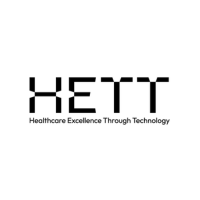Written by Digital Care Hub
In an era where cyber threats are increasingly sophisticated and persistent, the health and care sectors stand at a critical juncture. The importance of robust cybersecurity measures cannot be overstated, as the sector continues to digitise, with service user & patient safety and data integrity top of the agenda. To address these challenges head-on, the upcoming panel discussion, "Best Practice in Cyber Security: Achieving Excellence in the Health and Care Sector," promises to be one of the highlights of this year's HETT conference.
Scheduled for Tuesday, September 24, 2024, from 10:55 AM to 11:35 AM, this 40-minute session will focus on the most pressing cybersecurity issues facing the health and care sector today. Here's a glimpse of what to expect:
Building a Culture of Cybersecurity Awareness
Cybersecurity is no longer just the responsibility of the IT department; it’s a shared duty across every level of an organisation. The panel will explore strategies for embedding cybersecurity awareness into the organisational culture. Attendees will learn how the Department of Health & Social Care funded Better Security, Better Care programme at the Digital Care Hub has supported the adult social care sector on the cyber security journey.
Record numbers of adult social care providers are now using the Data Security and Protection Toolkit (DSPT) to check and improve their data and cyber security: 76% currently comply with the toolkit, as opposed to only 13% in 2021.
That is great news and it indicates that providers are increasingly aware of how essential good cyber security is for their business – and ultimately for the people they support.
But we know that’s not the ultimate objective. We know that's only one piece in the puzzle of creating a cohesive and digitised NHS and social care system.
Working towards a cyber resilient health and social care sector is a significant challenge. The sector is made up of complex, interdependent systems with different risks and needs.
Addressing Unique Challenges Using Common Frameworks
While every health and social care organisation must take responsibility for its own cyber security, with national cyber security teams setting direction and providing central support, we must work as one across the system to further cyber resilience to improve the safety of the people we care for.
A cyber resilient health and adult social care system in England: cyber security strategy to 2030 aims to support and enable better health outcomes. Improved cyber resilience will assure availability of services, protect valuable data, and build patient and service user trust in our systems. This is an ambitious body of work, but working collaboratively across the system we can have a genuine impact on people’s safety and wellbeing in assuring the vast and varied digitised care and support services provided across the sector.
Understanding Regulatory Frameworks and Compliance Requirements
Navigating the complex web of regulatory frameworks and compliance requirements is crucial for any health and care organisation. The panel will touch on the latest regulations affecting cybersecurity in the sector, including GDPR, Minimum Operating Data Standards and regulatory requirements.
For example: did you know the Care Quality Commission requires all services to keep data safe and to share it securely? Their new Single Assessment Framework explicitly references the Data Security and Protection Toolkit as something all CQC regulated services should have in place.
Why Attend the Session at HETT Show?
With cyber threats becoming more prevalent and sophisticated, it's vital for professionals in the health and care sector to stay informed and proactive. This panel offers a unique opportunity to gain valuable insights from experts, share experiences with peers, and leave with actionable strategies.
Don’t miss this chance to be part of a conversation that will help shape the future of cybersecurity in the health and care sector. Join us on 24th September to ensure your organisation is prepared to meet the challenges of today—and tomorrow.
%20(1).png?width=500&height=58&name=HETT%20insights%20logo%20RGB-04%20(1)%20(1).png)


